An idea has been percolating among American writers and thinkers who care about the function—and future—of US democracy.
Lamenting that elections as they now stand alienate so many voters by leaving them “without any say in how the country is run,” David Brooks recently concluded in his New York Times column, “the good news is that we don’t have to live with this system. We could have a much fairer and better system.” His proposed fix: “The way to do that is through multimember districts and ranked-choice voting.”
He’s describing a proportional system. The US is among only a handful of holdouts still using antiquated winner-take-all elections, along with France, the United Kingdom, and Canada. The other prosperous democracies of the world? They all send their leaders to office via proportional electoral systems.
The idea of an upgrade to a better, fairer system has not yet gone mainstream in the United States, but it’s an active conversation in Canada. And in one particular corner of Canada—our very own Cascadian corner, BC—voters have the chance to make the switch. British Columbians are voting now, by referendum, whether to ditch their winner-take-all system and opt for a proportional one. And many Americans who track democracy reform are paying close attention. If British Columbia upgrades its democracy, it could blaze a trail for Americans to follow.
Matthew Yglesias wrote at Vox that “Proportional Representation could save America.” He said, “you’d basically eliminate gerrymandering as a factor in American public affairs…this reform would do a lot to help us back away from conducting politics on a quasi-war footing.”
And the Editorial Board of the New York Times weighed in too, going so far as to hail a more proportional system as “the only way a democracy can survive.” They explain:
Across America, even sizeable communities of minority-party supporters regularly find themselves locked out of power for a simple reason: Single-member congressional districts. It may sound wonky, but in our hyperpolarized, geographically clustered and gerrymandered age, single-member districts have become a threat to the health of America’s representative democracy.
The referendum for British Columbians’ voting period ends December 7.
Meanwhile, American authors, activists, and democracy experts are weighing in. Here are quick takes from Lee Drutman, John Hopkins University Center for Advanced Governmental Studies political scientist, New America senior fellow, Vox contributor and author of The Business of America is Lobbying; Eric Liu, founder of Citizen University, former Deputy Assistant to President Clinton for Domestic Policy, and author of You’re More Powerful than You Think: A Citizen’s Guide to Making Change Happen; David Faris, professor of politics at Roosevelt University, writer for The Week, and author of It’s Time to Fight Dirty; and Krist Novoselic, Nirvana bassist and founder and FairVote board chair.
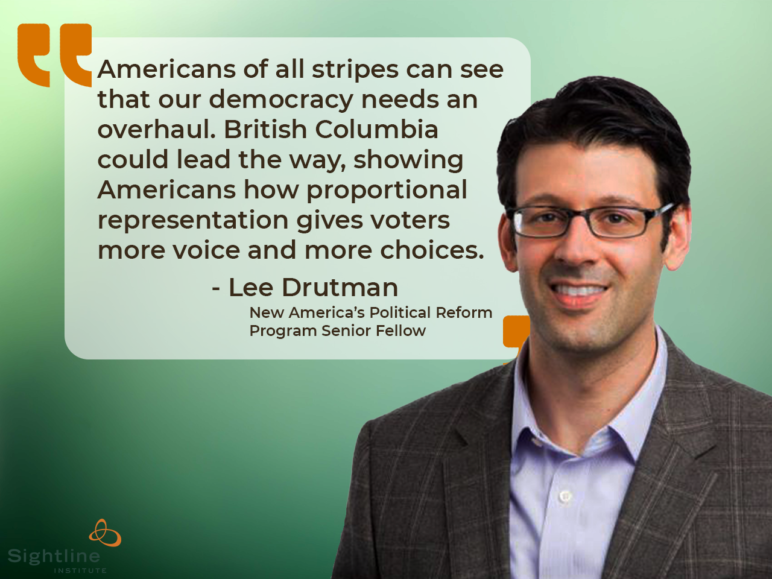
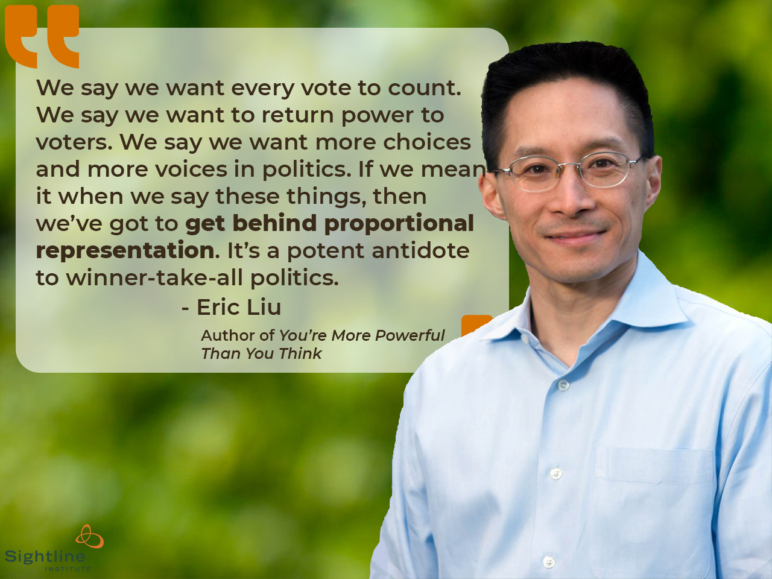
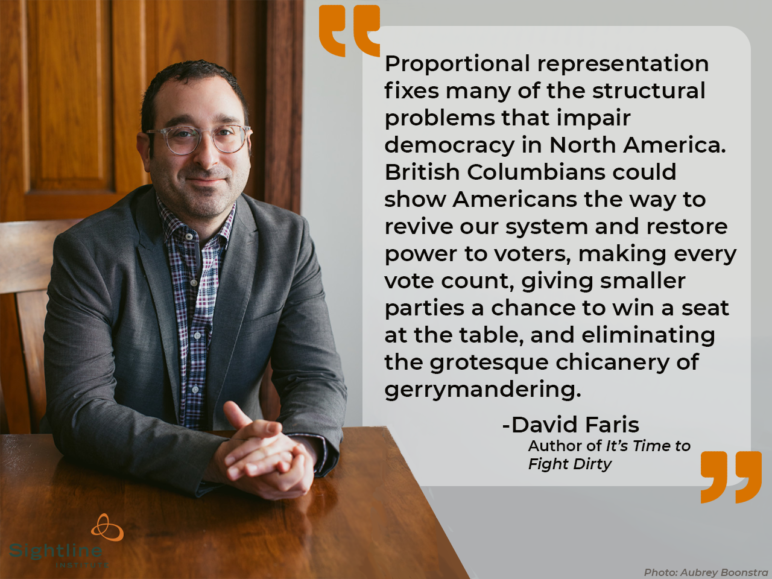
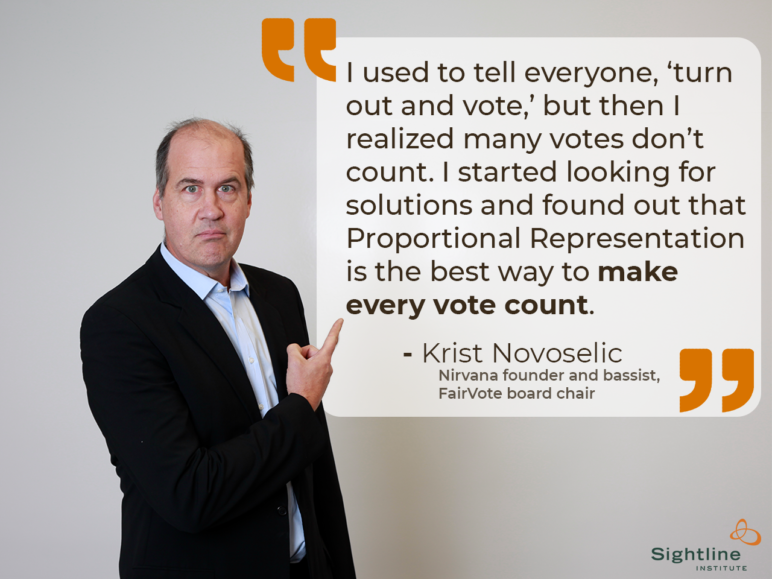
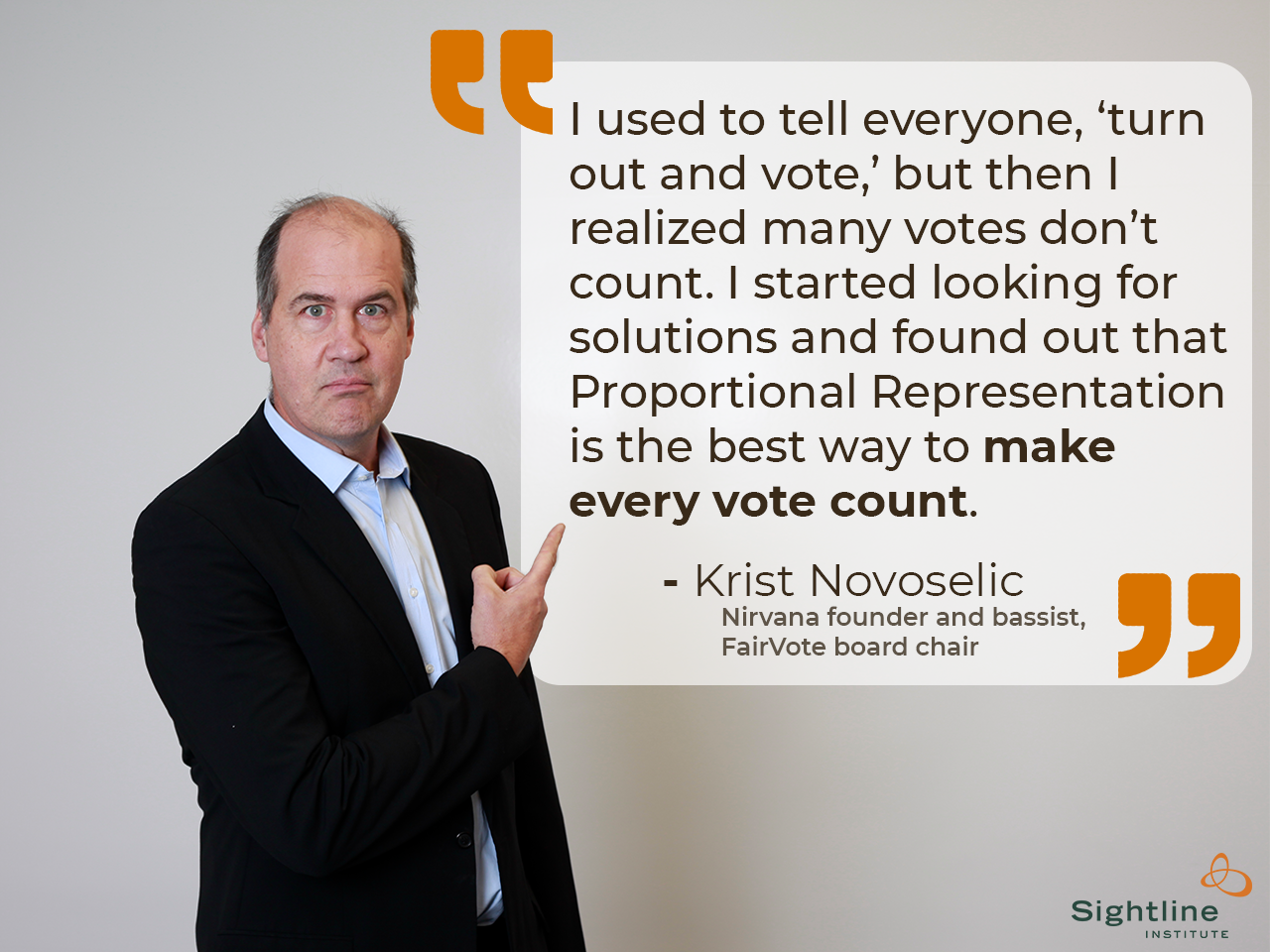

Comments are closed.